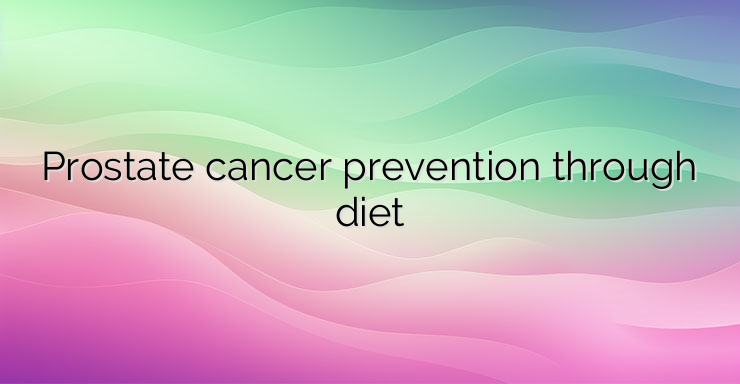Prostate cancer is one of the most common cancers in men. According to some data, it is also the second leading cause of death among men after lung cancer. Although there is no absolute way to prevent prostate cancer, there are some steps that can reduce the risk of developing it. Maintaining a healthy body weight, regular exercise and diet play a key role in reducing the risk of developing the disease. Tomatoes, watermelon and other red fruits contain a powerful antioxidant called lycopene. Current research supports that lycopene can effectively reduce the progression and growth of prostate cancer cells. A 2020 study found that consuming canned and cooked tomatoes more than 4 times a week was associated with a 28% reduction in prostate cancer risk compared to men who did not consume these foods. However, the scientists note that while there is some evidence linking tomato consumption to a lower risk of prostate cancer, more studies need to be done. A 2018 laboratory study found that cooking tomatoes, specifically frying them, can make it easier for the body to absorb lycopene. Also, the redder the tomato, the more lycopene has accumulated in it during ripening. This means that pale, store-bought tomatoes that are picked too early have less lycopene than ripe tomatoes. Eating fresh fruit is an important part of a balanced diet. It may also reduce the risk of prostate cancer. A 2017 study showed that people who consumed the highest amount of fruit, especially citrus fruits, had a reduced risk of developing prostate cancer. Some examples of citrus fruits that are beneficial include: Oranges; Grapefruit; Lemons; Lyme; tangerines; Kumquats; Yuzu It is important to note that grapefruit can interact with some types of medication, so it is necessary to consult a doctor before consumption. Research results show that nutrients called isoflavones are associated with a reduced risk of prostate cancer. Isoflavones are found in: Tofu; Chickpeas; Lentils; Alfalfa sprouts; Peanuts Also, the link between green tea and the risk of prostate cancer has long been studied. A 2017 study found that the risk of prostate cancer was lower in men who consumed higher amounts of green tea. It has been found that the occurrence of prostate cancer decreases with each additional cup of green tea per day. Bibliography: 1. American Cancer Society. Can prostate cancer be prevented? 2. Fraser GE, et al. (2020). Tomato consumption and intake of lycopene as predictors of the incidence of prostate cancer: The Adventist Health Study-2 3. National Center for Biotechnology Information (NCBI). Guo Y, et al. (2017). Green tea and the risk of prostate cancer: A systematic review and meta-analysis 4.Perez-Cornago A, et al. (2017). Fruit and vegetable intake and prostate cancer risk in the European Prospective 5. Investigation into Cancer and Nutrition 6. Healthline. How to Lower Your Risk of Prostate Cancer


Leave a Reply